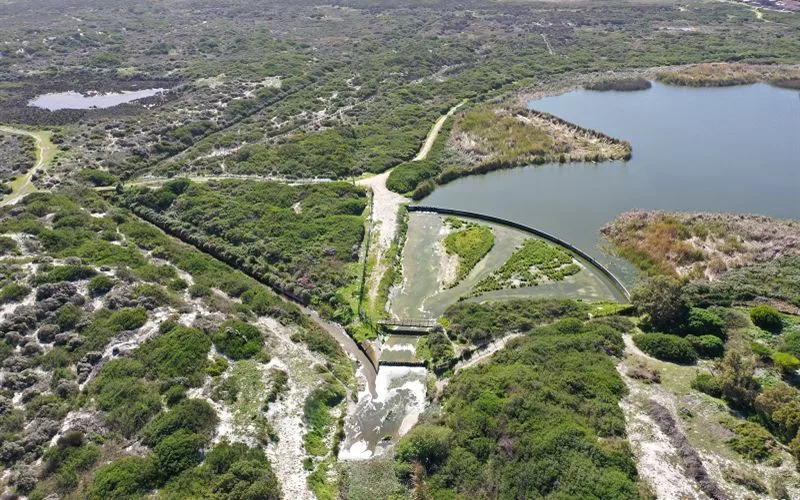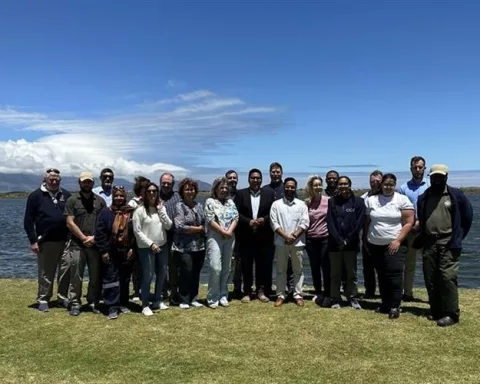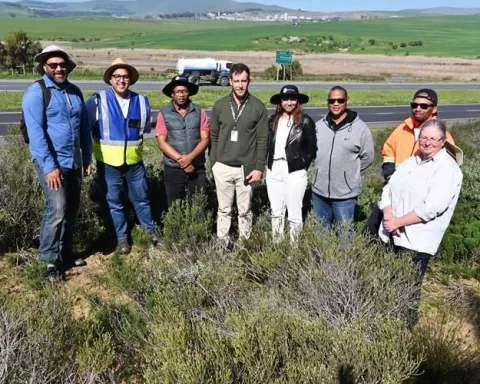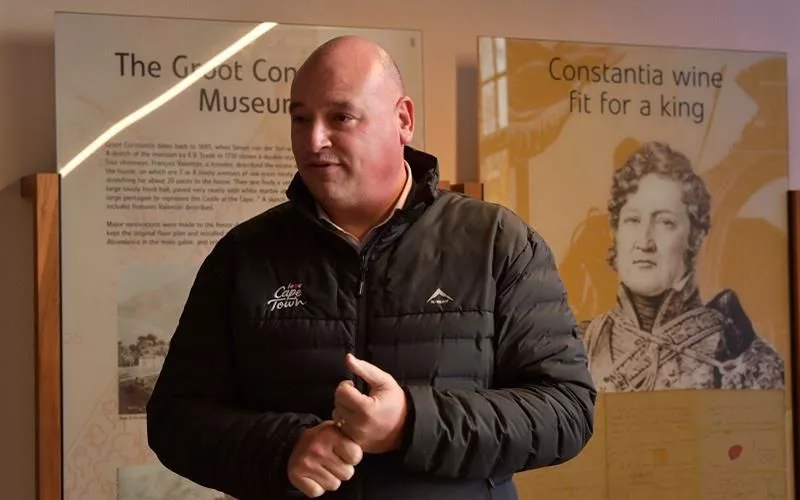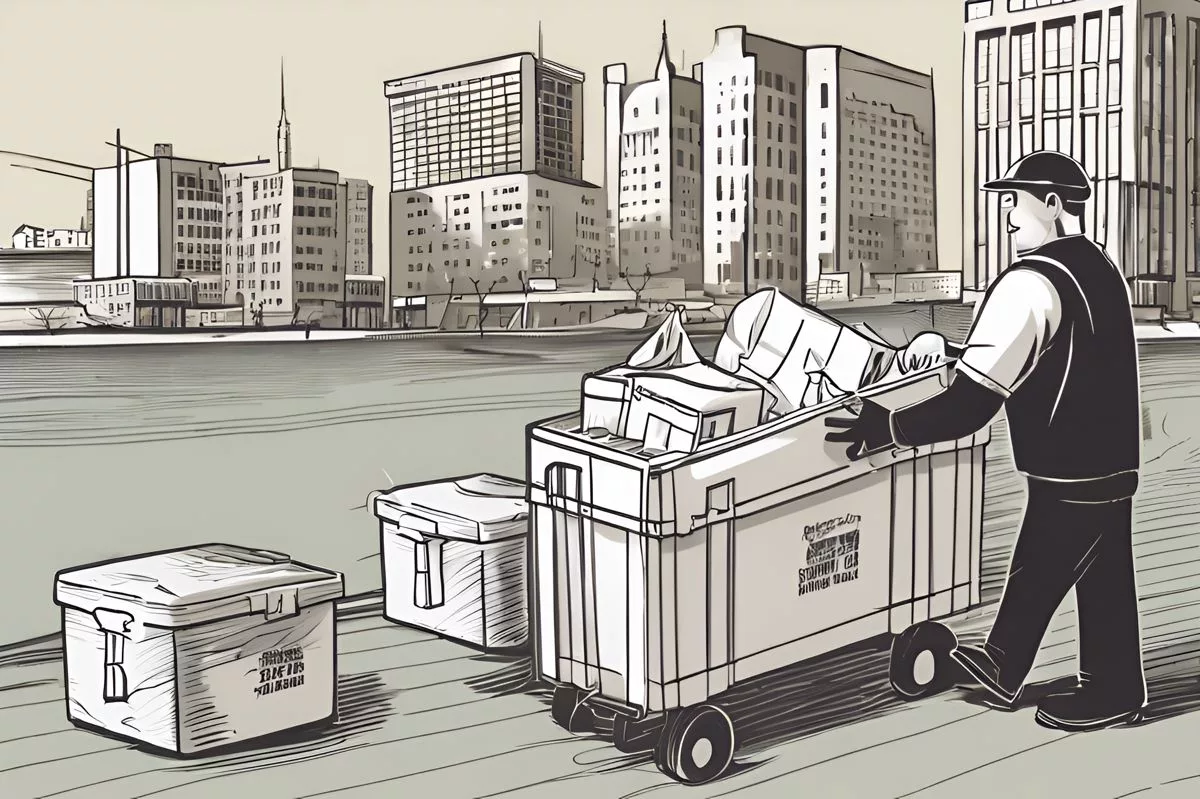Cape Town is revamping the weirs at Zeekoevlei and Rondevlei as part of a larger plan to improve water quality. The proposed changes aim to promote the oxygenation of exposed sludge, elevate groundwater levels and restore natural equilibrium. The City is encouraging public participation and adhering to strict environmental guidelines to ensure compliance. The proposed redevelopment represents a shared vision of a healthier environment and a sustainable future.
The City of Cape Town is revamping the weirs at Zeekoevlei and Rondevlei as part of a larger plan to improve the water quality in the region. The proposed changes include refurbishing the existing Zeekoevlei weir, establishing a new weir at Rondevlei, constructing a fish swim way, and upgrading existing structures. The improvements aim to promote the oxygenation of exposed sludge, elevate the groundwater level, and restore natural equilibrium. The City is encouraging public participation and adhering to strict environmental guidelines to ensure compliance. The proposed redevelopment represents a shared vision of a healthier environment and a sustainable future.
In an impressive showcase of environmental consciousness, the City of Cape Town is inviting its residents to share their insightful feedback on the proposed changes to the weirs at Zeekoevlei and Rondevlei. These are significant water bodies within the region’s False Bay Nature Reserve, which is globally recognized due to its Ramsar site designation by the Ramsar Convention on Wetlands.
A Comprehensive Approach to Enhancing Water Quality
Far from being an independent endeavor, the suggested redevelopment is part of a larger plan by the City to improve the water quality in the region. Included in these efforts is the dredging of [Zeekoevlei](https://capetown.today/celebrating-women-comedy-and-motherhood-mother-funnies/), a critical operation aimed at removing the nutrient-rich, pollution-filled sludge that has been hindering the prosperity of the wetland ecosystem.
The alterations being proposed are multifaceted, aiming to improve not only the water quality but also the structural and ecological aspects of the weirs. The existing Zeekoevlei weir will be refurbished to allow for quick lowering when necessary, which includes extending the weir, incorporating new mechanical sluice gates, initiating a gatehouse for upkeep, and implementing stabilisation gabions.
Construction of New Infrastructure and Upgrades to Existing Structures
In addition, a new weir at Rondevlei, equipped with sluice gates, will be established further downstream to better manage its water levels. The project will also include a wooden pedestrian bridge and retaining walls. The existing Rondevlei weir won’t be overlooked, as it will undergo enhancements such as the installation of new sluice gates and a gatehouse for maintenance.
To connect the new Rondevlei weir with the revamped Zeekoevlei weir, the City is proposing the creation of a fish swim way. This innovative measure will significantly enhance the migration of fish into and from the vleis, revitalizing the ecosystem and increasing the overall fish population in the nearby coastal environment.
Alongside this, the City also plans to construct a fish ladder at the Zeekoe culvert bridge to aid the upstream migration of fish from the lower Zeekoe River towards the vleis.
Anticipated Benefits of the Proposed Redevelopment
The benefits of these proposed changes are considerable. The redevelopment will enable deeper and more flexible yearly drawdowns of the Zeekoevlei and Rondevlei, thereby facilitating the clearing of sludge and reeds, and promoting the oxygenation of exposed sludge. The new design aims to facilitate a deeper drawdown stage, which will significantly improve the water quality of the vleis. Moreover, the newly installed Rondevlei weir will elevate the groundwater level in the southern part of the nature reserve section.
A noteworthy advantage of the proposed redevelopment is the flexibility it offers, in addition to introducing indigenous estuarine fish into the vleis. This is expected to not only enhance the aquatic ecosystem but also positively impact the surrounding flora and fauna, boosting biodiversity and restoring natural equilibrium.
Ensuring Environmental Compliance and Encouraging Public Participation
The City of Cape Town has been mindful in every step it has taken, appointing an independent Environmental Practitioner to carry out the required Environmental Impact Assessment associated with the proposed redevelopment. The City is adhering to the regulations of the National Environmental Management Act (NEMA), thereby ensuring the changes abide by strict environmental guidelines and are in the best interest of the ecosystem.
The City is inviting locals and interested parties to register their comments about the proposal in a spirit of open and inclusive participation. This encourages a shared sense of environmental responsibility within the community.
From Manual to Mechanical: Upgrading the Weirs
Zeekoevlei and Rondevlei are currently managed through an annual ‘drawdown’, a process of minimizing the water level. This typically takes place at the end of the summer sailing season and aims to remove nutrient-rich water and sediment from the system. The proposed changes represent a significant shift from the current manually operated weirs, which limit the depth of the drawdown.
The move to mechanically operated sluice gates will enable quicker drawdowns. Furthermore, the lower weirs will permit a lower level drawdown of the vlei water, offering a more efficient and effective solution to manage the water levels.
The addition of fish swim ways to the structural improvements will promote the reintroduction of natural estuarine fish into the vleis. This will rejuvenate fish diversity and abundance, reinvigorate the nursery function of the two estuaries, and upgrade the conservation status of estuarine dependent marine fish species.
The City’s Deputy Mayor and Mayoral Committee Member for Spatial Planning and Environment, Alderman Eddie Andrews, shared his enthusiasm about the possibility of reintroducing native fish back into the two vleis.
The proposed redevelopment of the weir complex at Rondevlei and Zeekoevlei, situated in the False Bay Nature Reserve, is a clear indicator of the City’s dedication to enhancing water quality and estuarine life. This initiative, with its inclusive approach and ecological perspective, embodies a deep respect for the natural environment and a strong commitment to its preservation. It represents a shared vision of a healthier environment and a sustainable future, encapsulating the spirit of community stewardship in the protection and enhancement of natural resources.
What is the purpose of revamping the weirs at Zeekoevlei and Rondevlei?
The purpose of revamping the weirs at Zeekoevlei and Rondevlei is to improve the water quality, promote the oxygenation of exposed sludge, elevate groundwater levels, and restore natural equilibrium. The alterations being proposed are multifaceted, aiming to improve not only the water quality but also the structural and ecological aspects of the weirs.
What are the proposed changes for the weirs at Zeekoevlei and Rondevlei?
The proposed changes include refurbishing the existing Zeekoevlei weir, establishing a new weir at Rondevlei, constructing a fish swim way, and upgrading existing structures. The improvements aim to promote the oxygenation of exposed sludge, elevate groundwater levels, and restore natural equilibrium.
What are the anticipated benefits of the proposed redevelopment?
The benefits of the proposed redevelopment include deeper and more flexible yearly drawdowns of the vleis, thereby facilitating the clearing of sludge and reeds and promoting the oxygenation of exposed sludge. The newly installed Rondevlei weir will elevate the groundwater level in the southern part of the nature reserve section. The proposed design aims to introduce indigenous estuarine fish into the vleis, enhancing the aquatic ecosystem, positively impacting the surrounding flora and fauna, boosting biodiversity, and restoring natural equilibrium.
How is the City of Cape Town ensuring environmental compliance?
The City of Cape Town has appointed an independent Environmental Practitioner to carry out the required Environmental Impact Assessment associated with the proposed redevelopment. The City is adhering to the regulations of the National Environmental Management Act (NEMA), ensuring the changes abide by strict environmental guidelines and are in the best interest of the ecosystem.
How can the public participate in the proposed redevelopment?
The City of Cape Town is inviting locals and interested parties to register their comments about the proposal, encouraging a shared sense of environmental responsibility within the community.
What is the significance of the proposed redevelopment?
The proposed redevelopment embodies a deep respect for the natural environment and a strong commitment to its preservation. It represents a shared vision of a healthier environment and a sustainable future, encapsulating the spirit of community stewardship in the protection and enhancement of natural resources. The initiative, with its inclusive approach and ecological perspective, is a clear indicator of the City’s dedication to enhancing water quality and estuarine life.

